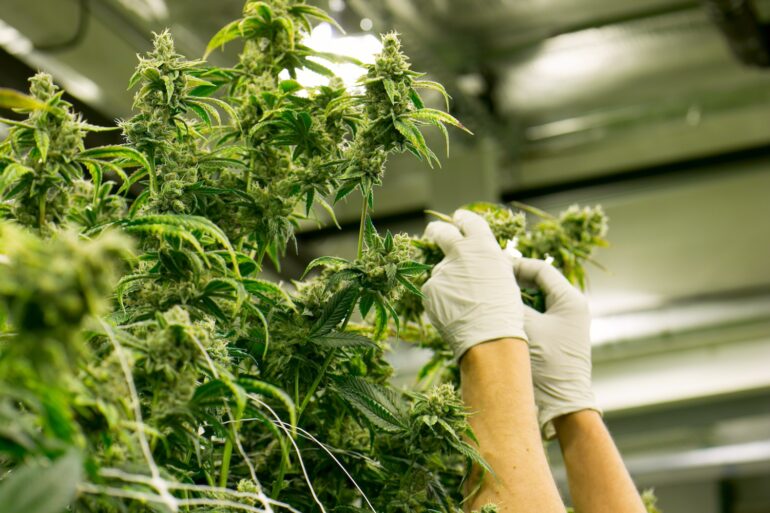THC-O was long suspected to be illegal, even when derived from hemp, based on a letter from the DEA to attorney Rod Kight. But a new ruling from the 4th Circuit Court of Appeals concluded that it actually is legal, explicitly rejecting the DEA’s position on the law.
We spoke to Phil Dixon, Director of Public Defense Education at the University of North Carolina, who summarized, “The opinion squarely holds that THC-O is a legal hemp product, so long as it doesn’t have an illegal amount of delta-9 THC. And because Chevron deference is over and done with, the court doesn’t have to defer to the agency’s interpretation.”
What the court ruled: Although the case concerned a possible wrongful termination on the grounds of two failed drug tests, the company claimed that the THC-O products the plaintiff was taking were illegal based on the DEA’s letter. However, the court – even though it ruled the termination was ultimately lawful – argued that synthetic cannabinoids means those made “entirely out of synthetic materials” and that THC-O is legal under the Farm Bill.
Does the ruling hold any weight? Since the court case was not actually about the legality of THC-O, it’s natural to wonder if this really means anything. We asked cannabis attorney Rod Kight about this:
“Yes, this opinion carries significant weight. […] [T]he 4th Circuit went out of its way to address THC-O and hemp compounds. It didn’t have to address THC-O or hemp compounds at all in order to support its opinion. The fact that it did address the hemp issues at length, particularly on a case of first impression, signals that the court wanted to make a point about the legal status of hemp compounds.”
The big picture: Since the 2018 Farm Bill became law, there have been continuous debates surrounding specific cannabinoids and its interpretation.
- Delta-8 THC ignited controversy because it is produced in a way some consider “synthetic,” produced from hemp-derived CBD in a lab. This argument was taken up by the 9th Circuit in AK Futures vs. Boyd Street Distro (page 17 for the relevant section), where the court concluded that delta-8 is legal even when produced from hemp-derived CBD, provided the delta-9 THC levels stays under 0.3%.
- Despite this, many states have specifically banned hemp-derived cannabinoids created through processes like those used for delta-8 THC and the DEA continued to make essentially the same argument afterwards.
Is THC-O different from delta-8? The core issue with THC-O is that unlike delta-8, it is not naturally found in the cannabis plant. Phil Dixon explains:
“The DEA takes the position in the interim final rule on this that the delta-9 THC concentration doesn’t matter if the compound at issue is ‘synthetic.’ Since THC-O can only be produced through a process of synthesis and can’t be directly derived from the plant, they consider the compound an illegal synthetic. They made the same argument about delta-8 THC in the Ninth Circuit and lost. Same here.”
Why it matters: The court explicitly sided with the 9th Circuit’s earlier ruling and against the DEA.
- Firstly, this means that it’s likely that THC-O is legal under the Farm Bill, as Phil Dixon points out:
“This all means that yes, THC-O, when not otherwise exceeding the delta-9 THC concentration, is legal as a matter of federal law within the Fourth Circuit. The DEA can continue trying to enforce its interpretation in other circuits where the issue hasn’t been decided, but they won’t win on that argument in this circuit.”
- Secondly, it underlines the fact that the DEA’s opinion is not given any special weight by the courts, as Rod Kight emphasized:
“The court also made a big point of stating that the DEA’s opinions on hemp were not going to carry weight unless they followed the unambiguous letter of the law as set forth in the Farm Bill.”
Will anything change? This will likely give manufacturers some peace of mind when it comes to the legality of some of their products. Make no mistake: if THC-O is legal when derived from hemp, this same argument applies much more broadly than one specific cannabinoid. Rod Kight acknowledged the “big implications” of the ruling, but pointed out that the industry has already largely shifted away from the “alphabet soup” compounds:
“From a practical standpoint I don’t see the court’s opinion causing a big change in the hemp products that are marketed or the hemp industry’s current focus on flower and naturally-occurring compounds.”
So the ruling may not make much difference “on the ground,” but it is a huge neon sign telling us that the plain text of the Farm Bill legalizes hemp-derived delta-8, THC-O and likely much more, regardless of what the DEA thinks.
